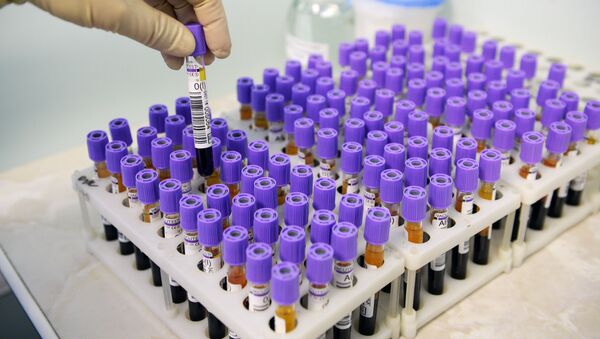The US agency and drugmaker plan to use the same class of drug, based on monoclonal antibodies, that helped treat Ebola in the Democratic Republic of Congo.
According to the Mayo Clinic, “Monoclonal antibodies are laboratory-produced molecules engineered to serve as substitute antibodies.” The antibodies can bind to the proteins on viruses, which prevents them from infecting other cells in the body. In 2019, Regeneron developed a cocktail of three monoclonal antibodies that greatly increased survival rates among Ebola patients in the Democratic Republic of Congo, AFP reported.
“Emerging infectious diseases can present serious threats to our nation’s health security,” said Rick Bright, an official at the HHS, is quoted as saying, AFP reported.
“Working as public-private partners like we have with Regeneron since 2014, we can move rapidly to respond to new global health threats,” Bright added.
Regeneron has also worked to develop a treatment for Middle East respiratory syndrome (MERS), which is caused by another variety of coronavirus.
“The life-saving results seen with our investigational Ebola therapy last year underscore the potential impact of Regeneron’s rapid response platform for addressing emerging outbreaks,” George Yancopoulos, Regeneron’s president and chief scientific officer, is quoted as saying by AFP.
Chinese doctors have been giving coronavirus patients HIV drugs, namely lopinavir and ritonavir, along with an anti-flu drug called oseltamivir. The combination of all three drugs has proved effective in some cases.
Other pharmaceutical companies, including Moderna Inc, Gilead Sciences Inc and Johnson & Johnson, have also announced that they plan to develop treatments for the coronavirus, Reuters reported.
More than 24,000 people worldwide have been infected by the coronavirus, which originated in China’s Hubei Province in December. In addition, at least 494 people have died from the virus so far, with 479 of the fatalities occurring in Hubei.

